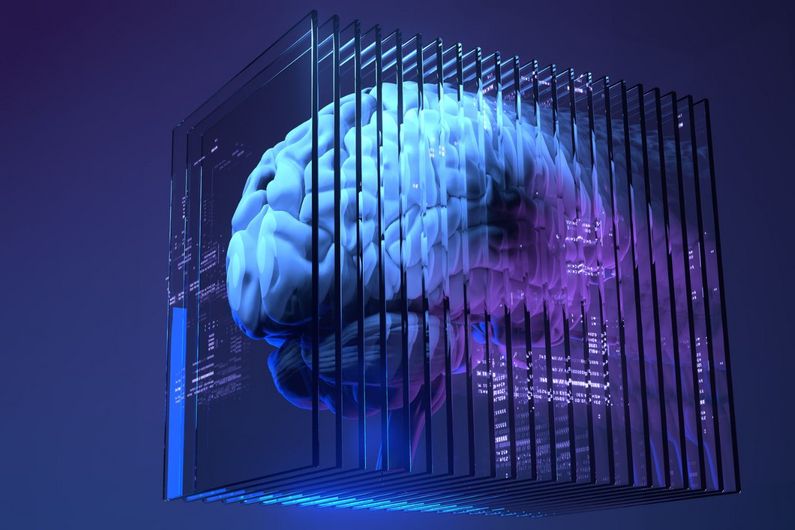UdeM: where neuroscience meets AI
- UdeMNouvelles
11/06/2023
- Béatrice St-Cyr-Leroux
Groundbreaking research is being carried out in several Université de Montréal departments and research institutes to link artificial intelligence and the functions of the brain.
The disciplines of neuroscience and artificial intelligence (AI) are intricately linked. The structure of the brain inspired the artificial neural networks of AI systems, and the machine learning techniques of AI, in particular deep learning, are modelled on the functioning of the mind.
Now, AI researchers including Université de Montréal's Yoshua Bengio and Guillaume Lajoie at the UdeM-affiliated Mila - Quebec Artificial Intelligence Institute are working hard to understand and replicate other aspects of human cognition such as neuroplasticity, the brain’s ability to adapt and learn new information.
Bengio, a professor at in the Department of Computer Science and Operations Research, and Lajoie, an assistant professor in the Department of Mathematics and Statistics, are exploring ways to design AI systems capable of advanced human cognitive functions such as perception, memory, learning, flexibility, decision-making and language.
At the same time, their colleagues at UdeM are using large AI systems to model, stimulate and understand brain processes, enabling neuroscience researchers to test hypotheses about how the brain works. Eilif Muller, an assistant professor in the Department of Neuroscience and a researcher at the Institute for Data Valorization (IVADO), is using AI models to examine the ability of synapses in the neocortex to change.
New fields of research
The interplay between neuroscience and AI has led to the emergence of a new field known as neuroAI. Drawing on biological principles from neuroscience to design AI systems, neuroAI aims to understand human intelligence and develop next-generation AI systems that are more targeted and efficient.
One concrete application is the creation of brain-computer interfaces, devices that use AI to enable the brain’s neural network to communicate with an external device such as a computer, and vice versa.
Lajoie and his colleagues Marco Bonizzato, Marina Martinez and Numa Dancause in UdeM’s Department of Neuroscience recently discovered a way to improve the functioning of intelligent neuroprosthetics, devices that restore motor function after a spinal cord injury or stroke.
NeuroAI is also spawning new fields of research such as computational psychiatry, which uses computer tools that leverage large datasets such as a corpus of brain imaging results to improve scientists' understanding of psychiatric and neurological disorders.
Mila researchers Guillaume Dumas of UdeM’s Department of Psychiatry and Addiction and Karim Jerbi of UdeM’s Department of Psychology are both working in this field. Jerbi is using magnetoencephalography, which records electromagnetic activity in the brain, to compare the role of brain oscillations during normal versus pathological functioning.
"Big data tools and AI can help us understand mental health problems and act early to prevent, detect and treat these problems," said Dumas.
Montreal, a neuroAI hub
As these examples of cutting-edge research show, Montreal has become a hub in the fast-growing field of neuroAI, thanks in large part to the ecosystem created by Université de Montréal, Mila and IVADO.
Mila recently hosted a workshop that brought together experts from Montreal and around the world to present and discuss the latest neuroAI research.
"There are very few places in the world where there is such a strong concentration of advanced expertise in AI and neuroscience, and in the intersection of the two," said Lajoie. "This combination is quite unique."














